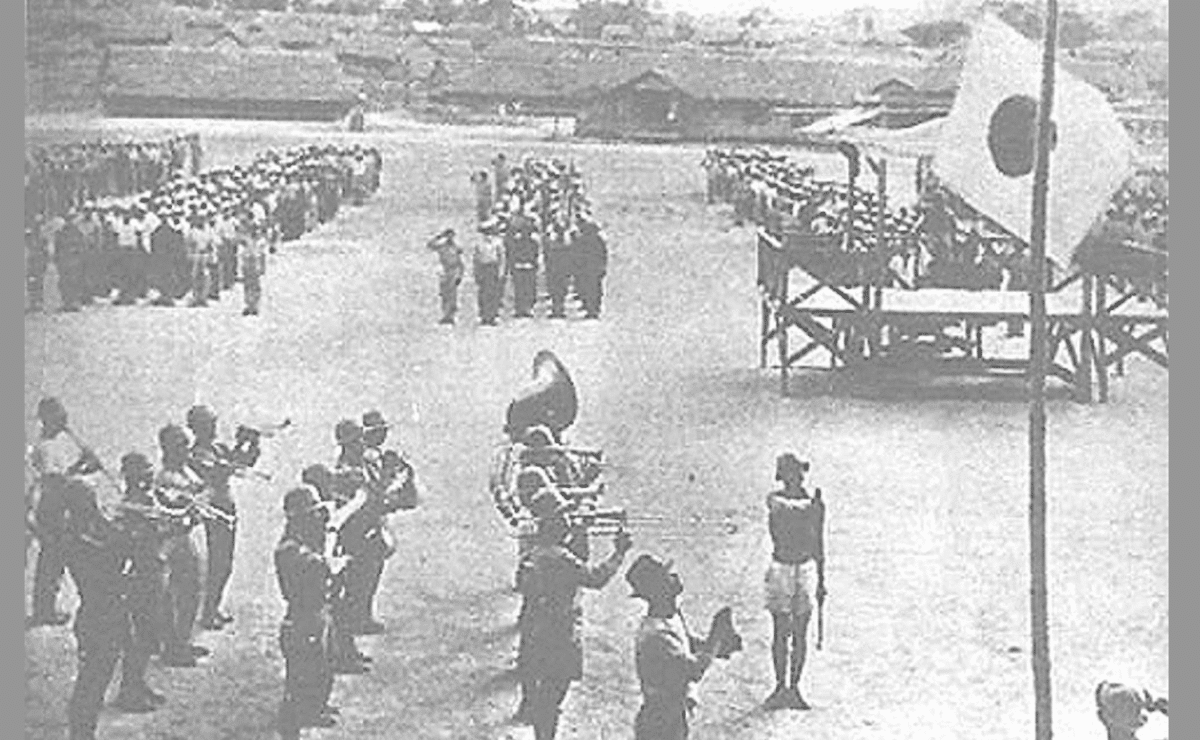July 19, 1949: Sadistic Japanese commandant sentenced to life in prison

Photo from National Endowment of the Humanities
One of the most despicable acts during the Japanese occupation of the Philippines during World War II was the treatment of the American and Filipino Prisoners of War (POWs) at Camp O’Donnell.
The Filipino and American soldiers had just survived the notorious Bataan Death March but then had to endure the atrocities of Camp O’Donnell. The camp in Capas, Tarlac was only functional for three months, April to July 1942, but 21,684 Filipinos and 1,488 American died of neglect at the hands of the Japanese.
There was no reason for this horrific treatment of the POWs. The post World War II trials on war crimes determined that there were adequate supplies of food, water and medicine at the camp. The Japanese POW leadership just failed to discharge their duties at the camp. Due to the neglect, most of the Filipino and American POWs died of starvation, dehydration, exhaustion, amoebic and bacillary dysentery, beri beri and malaria. These issues and maladies were treatable.
The sadistic commandant of Camp O’Donnell was Captain Yoshio Tsuneyoshi. When the new Prisoners of War arrived at the camp, he would lecture them via a translator for two hours in the blazing sun. If a POW passed out, his comrades were prohibited from coming to their assistance. The captain made wild gestures with his arms and hands during the two-hour harangue of the new POWs. The captain dressed in a bizarre attire of baggy shorts, a white shirt, riding boots, a mustache and a samurai sword.
Captain Tsuneyoshi was a 1915 graduate of the Japanese Military Academy. Shortly after graduation, his military career stagnated and was not progressing. His military peers did not think highly of him. He eventually had to transfer to the army reserves. His civilian career as an office worker was as mediocre as his military career.
During Japanese aggression in Southeast Asia, Captain Tsuneyoshi was recalled to active duty. His classmates at the military academy were now colonels, but Tsuneyoshi remained a captain at the age of 51. He was assigned to POW duty which was looked upon as the lowest position in the Imperial Japanese Army.
Following the end of World War II, the captain was captured by the American occupation forces in Japan. He was subjected by the Staff Judge Advocate to criminal charges by the United States of American vs. Yoshio Tsuneyoshi. He was convicted and sentenced to life in prison with no clemency.
He was shortly transferred to the Philippines, the scene of the crime, for a trial by the Philippine Army. On July 19, 1949, he was sentenced to life in prison. In 1953, he was sent to a Japanese prison to complete his sentence.
Dennis Edward Flake is the author of three books on Philippine-American history. He is a Public Historian and a park ranger in interpretation for the National Park Service at the Eisenhower National Historic Site in Gettysburg, PA. He can be contacted at: flakedennis@gmail.com







